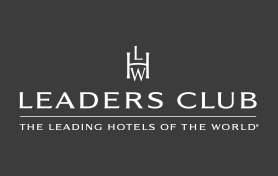History
Schloss Elmau is a unique resort that has been celebrating, for more than a century now, concerts and festivals with the great artists of our time. To me, high culture is the highest expression of individual freedom and creativity inspired by a Jewish-American ideal of liberty, that is strangely still viewed as the greatest antithesis of high culture by cultural elites in Germany who are still critical of Western civilization. This motivated me to hold a series of “Schloss Elmau Symposia” with internationally renowned scholars to examine the history of opposing ideals of freedom and the enduring political relevance of the critic of western civilization in Germany, which in my view had paved the way to the rupture with civilization in the Holocaust.
My grandfather, who had built Schloss Elmau in 1916, has been critical of western civilization and individualism. He has been a philosopher who wanted his readers and guests to take a “vacation from their self” in concerts and dance evenings with Classical Music and to experience silence in pristine nature. After Schloss Elmau was destroyed by a fire in 2005, I rebuilt and expanded in 2007 and 2015 as a cosmopolitan Luxury Spa Retreat & Cultural Hideaway, to offer cosmopolitan individualists and aesthets plenty of possibilities and space to experience a truly memorable “vacation for their self”. The appreciation of individual freedom, contradiction and complexity is reflected in the new architecture, interior design and cultural program of the new Schloss Elmau, hosting each year up to 200 concerts with the great artists of our time as well as literary events and political debates with renowned authors and intellectuas from around the world.
Beyond being a Member of the Leading Hotels of the World and one of the world´s best Spas, Schloss Elmau, for me, has always been also a political project committed to defending liberty and deepening ties with Israel and the United States of America. It has therefore been a special privilege and honor for Schloss Elmau to host two historic and extraordinary hamonious G7 Summits in 2015 and 2022.
Dietmar Mueller-Elmau
Schloss Elmau was built in 1916 by Protestant theologian, philosopher and bestselling author Dr. Johannes Müller (1864–1949), as a “space for personal freedom and communal life” devoid of any ideology. Construction was made possible with financial assistance from Elsa, Countess of Waldersee; Professor Carlos Sattler, Müller’s brother-in-law, served as architect.
Johannes Müller wanted to offer his guests the possibility to take a vacation from their self and become aware of silence as the true essence of their being by listening or dancing to classical music or listening to the deafing sounds of silent mountains and rushing streams in prstine nature.
Critical of individualism, materialism and capitalism, Müller was also an ardent opponent of both the established church. For him, Jesus was the “Conqueror of Religions” and “childlike oblivion of the self”, the prerequisite for fulfilling the promise of salvation on earth contained in the Sermon on the Mount. He has been a fervent opponent of anthroposophy, which he descibned as a dangerous attempt of “divinization of men by men” or in ohter words "men trying to deify themselves". He also regarded meditation or any attempt of self-optimization as an obstacle to true self realization.
Thousands of people flocked to his lectures and his books, published by the renowned publishing house C. H. Beck, were bestellers and enjoyed more print runs than those of Oswald Spengler. Among Müller’s greatest admirers of the time were Prince Max von Baden, who considered him as his Guru, Walther Rathenau, Martin Buber and the famous theologians Ernst Troeltsch and Adolf von Harnack. Harnack, who was the founder of Cultural Protestantism and closest advisor to the Kaiser Wilhelm II., and is considered to be the politically and theologically “most influential religious intellectual” of liberal Protestantism, which is still inherent in the anti-rational, anti-american and antisemtic ideals and ressentiments of cultural and political elites in Germany.
In 1933 Johannes Müller transposed, in contradiction to his imperative of abstraction – according to which God was in, but not of this world – his religious ideal of freedom from the “Self” to the totalitarian political ideal of subordinating the “I" under the “We” of a “community of brothers looking after one another”. To the complete surprise especially of his many Jewish guests, Müller thus came to consider Hitler, whom he had ignored until then, to be the leader of a “national revolution of the common good over self-interest” because of the Nazi leader’s declaration Du bist nichts; dein Volk ist alles (“You are nothing; your people are everything”). However, Müller believed this revolution could succeed only with the help of the Jews as the “better Germans” and “the most noble representatives of the intellectual elite.” His public criticism of antisemitism, which he called a “disgrace for Germany,” kept him and his children from joining the party and not to allow the "Hitler Gruß" in Schloss Elmau. Yet because of his appeal to follow Hitler, his criticism of the Nazis’ antisemitism did not result in his immediate detention in Dachau, but only in his publications and speaking tours being limited and finally forbidden. The Staatskanzlei of the Bavarian Government had convinced Goebbels that his paradoxical simultaneous praise of Hitler and Jews actually added moral credibility to his support of Hitler and should therefore be seen as an advantage for the party.
In 1935 the University of Leipzig wanted to strip Johannes Müller of his PhD because of his critique of antisemitism, though this was prevented by an intervention by the famous philosopher Hans-Georg Gadamer, who was one of his admirers.
In 1942, to preempt its threatened confiscation by the SS, he leased Schloss Elmau to the Wehrmacht as a “vacation resort for soldiers returning from the front.” In 1943 the office in charge of the concentration camp Sachsenhausen requested his arrest due to his ongoing praise for the Jews, however, probably due to the intervention by former interior minister Wilhelm Frick, who himself had never been to Schloss Elmau, but who had family members which were admirers of Johannes Müller, he was put under house arrest only.
In 1946 the Bavarian state commissioner for persons subject to racist, religious and political persecution, Dr Philipp Auerbach, sued for a denazification case to be brought against Johannes Müller in Garmisch-Partenkirchen on the grounds of “glorification of Hitler both orally and in writing”.
The case was found against Müller, based on the claim that his public criticism of the Nazis’ antisemitism had, paradoxically, reinforced the effect of his support for Hitler. But the verdict was seen as controversial, and a call for the immediate expropriation of his property failed—not only because Countess Waldersee refused to sell her share of the property, but also because Müller had been neither a member of the Nazi Party nor been involved in any acts of war. The laws governing liberation from National Socialism and militarism therefore provided no legal grounds for a conviction or punishment.
In 1947 Dr. Auerbach took possession of Schloss Elmau despite not holding title deeds. Until 1951 Schloss Elmau operated as a sanatorium for displaced persons and Holocaust survivors.. Concerts, literary events and Jewish Holidays brought new live and purpose to Schloss Elmau.
In 1951 tragedy befell Dr Auerbach: accused of misappropriation, he was imprisoned and then took his own life. Some years later all charges against him - which were the result of rampant antisemitism in Munich even after the Holocaust - were dismissed and he was rehabilitated in 1954.
Concerned about potential restitution claims arising after a successful appeal of the tribunal’s decision, the Bavarian state government after the death of Dr.Auerbach leased Schloss Elmau in 1951 to the son of Johannes Müller, Bernhard Müller-Elmau, and his sister, Sieglinde Mesirca. Together with Dr. Odoarda Mesirca as the Director of the Hotel, they opened Schloss Elmau in June 1951 with a Chamber Music Festival. As the designated heirs, they became also the owners of Schloss Elmau only after the legal proceedings were closed in 1961.
In 1957 conductor Hans Oppenheim, who had emigrated to London after the Nazis took power, and the legendary Amadeus Quartet founded the Deutsch-Britische Musikwoche (German-British Music Week) – which might more accurately be described as a German-Jewish music festival. Classical Music and high culture took center stage and served as a medium for reconciliation between Germans and Jews. Some of the greatest artists of their time such as Benjamin Britten, Peter Pears, Yehudi Menuhin, Emil Giles, George Malcolm, Julian Bream, Alfred Brendel, Friedrich Gulda and Wilhelm Kempff performed regularly in Schloss Elmau and made it a unique and internationally renowned cultural institutionis is ever since.
In 1997 Dietmar Müller-Elmau, a son of Bernhard and Bep, became proprietor of Schloss Elmau. He had created Fidelio and Opera, the world’s market leaders in hotel software, then sold his company to Micros in the US. He focused on renovating the castle as well as redefining Schloss Elmau as a cosmopolitan “Cultural Hideaway”. He set out to create a space where high art could flourish as the foremost expression of a Jewish-American ideal of individual freedom and creativity.
Since 1998 Schloss Elmau has also become a venue for intellectual and political debates about Liberty and its Enemies with renowned scholars of Political Philosophy, Political Theology and the History of Ideas in cooperation with Christoph Schmidt, Professor of Philosophy at the Hebrew University in Jerusalem; Saul Friedländer, Professor of History of the Holocaus at the University of California in Los Angeles, Professor Gabriel Motzkin, Head of the Van Leer Institute in Jerusalem; Professor Dan Diner, Professor of History at the Hebrew University in Jerusalem and Director of the Simon Dubnow Institute of Jewish History in Leipzig and Michael Brenner, Professor of Jewish History at the University of Munich.
In 1999 philosopher Peter Sloterdijk gave a speech at the Schloss Elmau Symposium on Political Theology with the title “Beyond Being”, dealing with Emanuel Levinas’ criticism of the lack of ethics in Martin Heidegger’s ontology, entitled “Rules for the Human Park”, later referred to as “the Elmau Speech”. The reactions of Saul Friedländer and Jürgen Habermas led to an unparalleled public debate in the German-language press over several months about the ethical limits of genetic engineering. That resulted int he establishment of a National Ethics Council by the Social Democrat government under Gerhard Schröder. The first and only public meeting of the Council then took place in Schloss Elmau.
Shortly before, Friedländer chaired the Schloss Elmau Symposium on “Wagner in the Third Reich”, in which -- for the first time -- almost all of the recognised pro- and anti-Wagner experts participated. The symposium was hailed by the Frankfurter Allgemeine newspaper as an overdue debate on the ideological roots of National Socialism and the politically fateful role of Bayreuth in the Third Reich. The lectures were subsequently published by C. H. Beck as a book with the same title.
Since 2001 Schloss Elmau has regularly hosted a Jewish Tarbut conference under the direction of Dr. Rachel Salamander and Professor Michael Brenner, where leading Jewish intellectuals from all over the world meet with members of the Jewish communities from Germany, Austria and Switzerland.
Since 2002 regular Transatlantic Forums have been staged by the German Marshall Fund (GMF) of Washington led by the late Dr Ron Asmus, Craig Kennedy and Dr. Karen Donfried. During the forum in June 2005, Chancellor, Dr Angela Merkel gave a vigorously debated lecture about the relationship between Turkey and the European Union. The late Richard Holbrooke, who has been sspecial envoy for Eastern Euopre under President G.W. Bush and Barack Obama, Dr. Ron Asmus, who has been the architect of Nato Expansion and former Swedish Prime Minister Calrd Bildt, led seversal secret meetings with presidents and politicians from Eastern European Countries, Gerogia and Ukraine, who wanted to become member of NATO and the EU to prevent war with Russia and protect liberty.
2005 A major fire, which was caused by a short circuit, destroyed most of the hotel on Auguts 7th, 2005. Dietmar Mueller-Elmau took over majority ownership from the family and reconstructed the Schloss Elmau as a “Luxury Spa & Cultural Hideaway” and member of Leading Hotels of the World. Schloss Elmau has since received numerous awards as one of the best resorts in the world. The new Schloss Elmau was inaugurated in June 2007 with a Jewish “Tarbut,” followed by a Transatlantic Forum of the German Marshall Fund in Washington and a Schloss Elmau Symposium on “Islam Through Jewish Eyes, Judaism Through Muslim Eyes. in cooperation with the Chair of Jewish History at the University of Munich and the Chair of Eureopan History at the Universtiy of California in Berkely.
Chancelor Merkel had redefined the G7 2015 as a summit of a community of responsibility ("Verantwortungsgemeinschaft") of democratic and wealthy nations, to defend freedom and improve quality of life around the world. For the first time the G7 2015 had made a committed itself to the goal of total decarbonization in the 21st century, which paved the way to the Paris Climate Accord in the same year. Greenpeace had applauded the summit in full page ads in major newspaper with the message "Elmau delivered".
SCHLOSS ELMAU SYMPOSIA AND DEBATES
1998 - 100 Years of Zionism – 50 Years of Israel
1998 - The Leviathan – Jewish Modernity as a Political Theology
1998 - Globalization Without Migration?
1999 - Ethics of Memory?
1999 - Europe’s Borders and the Oriental Question?
1999 - The Attitude of the German Resistance to the Persecution of the Jews
1999 –Richard Wagner in the Third Reich
1999 - Beyond Being? Emmanuel Levinas vs. Martin Heidegger
1999 - Ethical Limits of Gene-Technology?
2000 - The Intellectual Foundations of the Berlin Republic
2000 - Idealization of the 20th of July?
2000 - Humanism After Nietzsche?
2000 - Political Theology of Love – Negative Theology vs. Catholic Philosophy
2000 - The Lesser Evil? Comparing Genocide Practices in Nazism and Communism
2000 - Global America? The Cultural Impact of Globalization.
2000 - Protestantization of Islam?
2001 - The End of Globalization?
2001 - Jews as Cosmopolitans?
2001 - Anti-Americanism in the West?
2002 - Islamic Modernity as a Political Theology?
2002 - The Ethics of Memory
2002 - Saudi Arabia the Problem – Iraq the Solution? Civilisatory Imperialism – America vs. Europe in a New World Order?
2002 - The Political Relevance of Cultural Protestant Religious Culture?
2003 - The Globalization of Holocaust Memory?
2003 - Comparing Immigration Regimes and Multiculturalism in Germany and Israel
2003 - Diaspora in Antiquity? Diaspora Today?
2003 - Transatlantic Forum of the German Marshall Fund
2003 - Rebuilding the West in the Greater Middle East?
2003 - West German Historians and the Holocaust
2004 - Europe Beyond East and West?
2004 - Transatlantic Forum of the German Marshall Fund
2004 - Rethinking 1000 years of GermanJewish Cultural History
2005 - Transatlantic Forum of the German Marshall Fund
2005 - Amerika, du hast es besser? / America, You Have It Better?
2007 - Transatlantic Forum of the German Marshall Fund
2007 - Islam Through Jewish Eyes, Judaism Through Muslim Eyes
2008 - Jews and Muslims in Christian Europe
2009 - For God’s Sake. Religion and Politics in America and Europe
2011 - Anti-Semitism in the Discourse of the 68ers?
2012 - Geopolitical Challenges for the Transatlantic Alliance
2012 - The Economics of Good and Evil
2013 - Horizons of Secularism at the Dawn of the 21st Century
2014 - Putinism: Russia and Its Future with the West
2015 - G7 Summit
2015 -
2021 Munich Security Conference Strategy Retreat
2022 - G7 Summit
SOME PARTICIPANTS OF THE SCHLOSS ELMAU SYMPOSIA AND DEBATES
Timothy Garton Ash (Oxford), Steven Aschheim (Jerusalem), Ronald D. Asmus (†), David Bankier (Yad Vashem), Yehuda Bauer (Yad Vashem), Ulrich Beck (Munich), Nicolas Berg (Leipzig), Udo Bermbach (Hamburg), Dieter Borchmeyer (Munich), Rémi Brague (Paris), Michael Brenner (Munich), Ian Buruma (New York), Gerard Delanty (London), Dan Diner (Jerusalem), Helmut Dubiel (†), Roland Eckert (Tübingen), John Efron (Berkeley), Rachel Elior (Jerusalem), Joachim Fest (†), Jens Malte Fischer (Munich), Norbert Frei (Jena), Saul Friedländer (Los Angeles), Bronislaw Geremek (†),Volker Gerhardt (Berlin), Sander Gilman (Chicago), FriedrichWilhelm Graf (Munich), Erich Gruen (Berkeley), Jürgen Habermas (Starnberg), Harald Haury (Munich), Susannah Heschel (Dartmouth), Moshe Idel (Jerusalem), Harold James (Princeton), Georg Kamphausen (Bayreuth), Gilles Kepel (Paris), David Clay Large (Berkeley), Walter Laqueur (Washington), Martin Malia (†), Avishai Margalit (Jerusalem), Jean-Luc Marion (Paris), Paul MendesFlohr (Jerusalem), Hassan Mneimneh (GMF), Jerzy Müller (Washington), Jürgen Moltmann (Tübingen), Hans Mommsen (†), Kogila Moodley (Vancouver), Gabriel Motzkin (Van Leer Jerusalem Institute), Herfried Münkler (Berlin), David N. Myers (Los Angeles), Martha Nussbaum (Chicago), Christian Nottmeier, Anson Rabinbach (Princeton), Tariq Ramadan (Oxford), Amnon RazKrakotzkin (Beer Sheva), Rüdiger Safranski (Berlin and Badenweiler), Rachel Salamander (Literaturhandlung, Munich), Christoph Schmidt (Jerusalem), Tomáš Sedláček (Czech Republic), Reinhard Schulze (Bern), Dietrich Schwanitz (†), Richard Sennett (Chicago), Emmanuel Sivan (Jerusalem), AnneMarie Slaughter (Princeton), Peter Sloterdijk (Karlsruhe), Natan Sznaider (Tel Aviv), Charles Taylor (Toronto), Gianni Vattimo (Turin), Yfaat Weiss (Jerusalem), Christian Wiese (Frankfurt), Yirmiyahu Yovel (Jerusalem), Shimshon Zelniker (Van Leer Jerusalem Institute), Hartmut Zelinsky (Munich).
PUBLICATIONS OF THE SCHLOSS ELMAU SYMPOSIA
Richard Wagner im Dritten Reich.
Ein Schloss Elmau-Symposion.
Saul Friedländer and Jörn Rüsen, eds. Munich, 2000.
Jüdische Geschichtsschreibung heute. Themen, Positionen, Kontroversen.
Ein Schloss Elmau Symposion. Michael Brenner and David N. Myers, eds. Munich, 2002.
Globales America?
Die kulturellen Folgen der Globalisierung.
Ulrich Beck, Natan Sznaider and Rainer Winter, eds. Bielefeld, 2003.
The Lesser Evil?
Moral Approaches to Genocide Practices.
Gabriel Motzkin and Helmut Dubiel, eds. London / New York, 2004.
Cultural Borrowings and Ethnic Appropriations in Antiquity.
Erich S. Gruen, ed. Stuttgart, 2005.
Europe and Asia Beyond East and West.
Gerard Delanty, ed. London, 2006.









![opa 04 [Translate to English:] Schwarz-weiß Aufnahme von Johannes Müller und Irene Sattler](/fileadmin/_processed_/5/3/csm_opa_04_a607ccbf78.jpg)
![philipp-auerbach100 [Translate to English:] Schwarz-weiß Aufnahme von Dr. Philipp Auerbach](/fileadmin/_processed_/d/0/csm_philipp-auerbach100_8492f33e26.jpg)
![bild011 01 [Translate to English:] Schwarz-weiß Aufnahme von Sieglinde und Dr. Odoardo Mesirca und Bernhard Müller-Elmau](/fileadmin/_processed_/6/0/csm_bild011_01_9fdb2666bd.jpg)










![[Translate to English:] Christoph Sattler & Dietmar Mueller-Elmau](/fileadmin/_processed_/3/3/csm_DSC_0066_dme_sattler_d295e0b6bf.jpg)
















